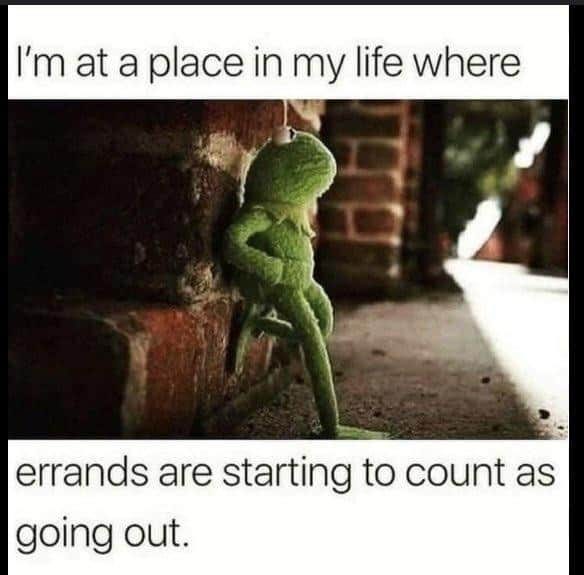Alright, I confess, I am a bit of a language nerd. I’m the one that friends send their copy to, to have a look at, rather than relying on spellcheck. My Lucy posts are reread multiple times, but if after posting someone points out a typo, I rush to correct it, while feeling mortified that I let a mistake escape into the world.
I yell at the TV when someone uses the word “like”, like every other word. And don’t get me started on the misuse and abuse of the word “awesome”. According to the Oxford language dictionary awesome is an adjective that means, “extremely impressive or daunting; inspiring awe”. Their example is, "the awesome power of the atomic bomb". Interestingly, another definition they give for awesome is, “adverb - informal, north American, extremely well; excellently as in "my yearly review went awesome". (What a grammatically appalling example!)
I do not want to hear about the “awesome” party you went to on Saturday or the “awesome” quiche you made. Neither of these two things are awesome. Standing in the middle of Machu Picchu is awesome; I was overcome with the miracle of its creation and its continued existence over a vast historical period of time.
Watching and listening to a brand-new human’s birth cry is awesome and such a privilege to share with parents. But when that child is two, sorry but their artwork is not awesome, it is at best developmentally appropriate. (Yes of course you tell your toddler how clever and artistic they are.)
More words that make me grumpy…
My number one pet peeve about a word that has transmogrified into something that is barely recognizable is inclusion. Inclusion is good right? Isn’t it a bit mean to exclude others who want to join in? If exclusion is considered such a societal bad, then why does every known culture practice this? Exclusion by virtue of age applies to several activities and practices. Just because you are an adult sized person at age 13, you can’t get a driver’s licence. If you are a 14-year-old girl who has consensual sex with a 20-year-old guy, in most jurisdictions he can be charged with a crime because young girls are excluded from being able to give their consent to sexual intercourse.
And in my birth and breastfeeding world, taking inclusion to its logical end point means that men must be welcomed into the inner sanctum of women’s business, while simultaneously catering to women pretending to be men. The other group who is often excluded by the presence of delusional adults is babies. Which serves to illustrate the many harms of inclusion and how putting an ideological spin on this word can cause more problems than it solves.
You don’t get much inclusion without more than a dash of kindness and blind acceptance. Griffin Sivret was shown so much kindness as a young teen as she latched onto a trans identity to cope with her family problems that by 24 she was dead. Since everyone accepted that she must be trans because she said so, rather than trying to explore what was causing her very real distress, that old aphorism about ‘killing with kindness’ turned out to be prophetically true.
I wrote here about lying to children. Santa, the tooth fairy and the Easter bunny can be spun into magical family rituals, but there are no happy endings once you tell children that they can choose their sex or even worse, that the activities they enjoy might mean that they were born in the wrong body.
“Gender neutral” is not a neutral or value free concept
To achieve blanket inclusion, it is necessary to pretend not only that sex doesn’t matter, but that our sex is fungible, capricious and totally at the mercy of our own desires. Somehow millions of years of evolution that devised a very successful reproductive strategy for every mammal on the planet just sort of wasted its time, now that we moderns have found a way around the binary that controls our destiny.
Sex as a biological descriptor is clearly an important feature of life for all humans. It plays an important part in most relationships, in every culture and over every period of recorded time. It’s the reason that pregnant women are asked if they are having a girl or a boy and is part of the reason for the popularity of ultrasound scans in pregnancy.
We do not have gender neutral bodies; we have sexed bodies. This is not always important, especially when talking about our employment opportunities, which is reflected in our changing use of language. I have no issue with referring to “police officers” as opposed to “policemen”. Sex need not be an impediment to your vocational choices, but there are other circumstances where sex really matters. A lot.
And so does language.
Urging others to use “gender neutral” language in a sexed setting can be confusing and it can cause unintended harms to those subjected to it. It can also be impossible to implement. There are around 7000 languages in use globally and around half of these are gendered.
English is not one of them; inanimate objects and even some other mammals are not designated as female or male, in fact except for people, nearly everything else is gender neutral or free of any gendered designation. In contrast, in Russian, the word for “day” is masculine, the word for “week” is feminine and the word for a “building” is neuter.
The adoption of gender free/neutral language in birth and breastfeeding circles harms women and babies because it implies that “parents” are a bit like Lego bricks, that is they are interchangeable. But babies disagree; they know when you are not their mother. This paper discusses the harms of gender free language in healthcare settings, including to the trans population.
What’s more disempowering than the adults around you all agreeing that you’re too feeble to handle reality?
The requirement to offer everyone “safe spaces” and to be guarded against being “triggered” has infantilized an entire generation of today’s young adults.
I had a wonderful friend who was one of those young men who stormed the beaches on D Day in World War II. When he was 19 years old, fresh out of a small-town high school and in addition to surviving the D Day landings, he went on to be one of the Allied soldiers who liberated one of the Nazi concentration camps. After the war, he returned home, married his high school sweetheart and supported her and their five children working for the Post Office. Needless to say, he was never offered a safe space while fighting in Europe and no one cared if any further life events triggered any of his wartime experiences.
Comparing his experiences to the stated “traumas” occurring everywhere, particularly in Western university campuses now, is it any wonder that all many people can feel is contempt for the lack of resilience on display?
Today people seem to need protection from the sorts of normal social gaffes that used to be just brushed off. Hearing a culturally insensitive comment, someone forgetting your birthday or a group displaying insufficient diversity can be used as an excuse to have a mental health meltdown.
Exaggerating everything is counterproductive
How many of you have seen social media posts stating some sort of simple fact, such as “trans women are men” and the response immediately ramps up to hysterical? Which leads me to the word existence as in “you are telling me I don’t exist!”. Um, no, clearly you exist (because a void would be quieter), but you don’t exist as a woman because dude, you were born a boy and you can’t change sex.
One of the hallmarks of transgenderism is over the top exaggeration, hyperbole and turning literally anything into trauma. By elevating everything, including normal societal disagreements to a trauma level affront, actual harms are minimized. This guy tells multiple restaurant servers that being called “sir” is like “a knife in the heart”.
So my friend running up a beach under heavy gunfire was just doing his job, but being “misgendered” is a tragedy?
Magnification is a known cause of cognitive distortion
Magnifying any sort of adverse event (or even just a minor inconvenience) helps no one. Catastrophizing situations is known to cause mental health disruptions and lead to worse, not better mental health states. Treating the worst possible outcome as inevitable leads us to making bad decisions based not on reality, but on a false belief system that we have created in our minds.
Adding to this is the use of “trauma” as a way to control the rest of us, to insist that we indulge and even revere others as stunning and brave on the basis of their opinions only; no actual reality needs to count in the face of this level of disordered thinking.
A hallmark of adulthood is resilience, not just in the face of true adversity, but in carrying on, day after day in the often exceedingly boring business of being the grownup in the room. The current cohort of narcissist people shouting continuously, “look at me because I am so special” may be technically adults, but in reality they are no more than truncated beings, at the mercy of their own deficiencies which they are attempting to get us as their audience to celebrate.
Being unable to tell the difference between actual harms and imagined harms levels the playing field detrimentally for those who are truly “stunning and brave” in actuality, while all it does for everyone else is cement in confused thinking and no exit options. If your trauma only exists as a performance piece, you may not be getting the help you actually need to feel better.







I'm of the opinion that those who don't engage in any physical challenges, which covers a wide range, turn too much inwards and create challenges there. I'm not talking about the clinically mentally unwell, but those who just don't get out of their own heads enough.
Thank you for analyzing the concept o Inclusion.
I wonder when Baby-carrying Mothers , breastfeeding mothers, and other mothers who need a paying job while caring for their children, will be Included in the formal employment sector. When will society give them the right to bring their child to work,or the right to work from home? Or the right to a subsidy for the invaluable service they provide to society by raising healthier and productive citizens? When will Mothers be included?
When will society include baby-carrying mothers in the classroom?
Why are Mothers last to the Inclusivity party?
And Lucy, for the first time since I read your column I found myself disagreeing with you. My second grader’s artwork is AWESOME ;)
Great article. Thanks!